Math
The Mathematics Department provides Cadets with learning experiences that help them transfer mathematical knowledge from concrete to abstract expressions. Multiple modes of learning are used to ensure that each Cadet receives the instruction necessary to excel in their courses.
Academic Approach
Each math course builds upon knowledge gained from the previous course. Emphasis is placed on a non-calculator approach and development of abstract thinking skills. Both advanced and AP classes are available for students who are looking for content delivered at an accelerated pace and in increased depth.
Curriculum
Pre-Algebra
Pre-Algebra – 9th grade – Full Year
Pre-Algebra is designed to develop an introductory understanding of Algebra and Geometry. It will also provide a smooth transition in mathematics from concrete experiences to more abstract experiences using multiple modes of learning.
Algebra I
Algebra I – 9th through 10th grade – UC Approved Course – Full Year
Pre-requisite: Successful completion of Pre-Algebra
The objective of Algebra 1 is to reinforce the skills developed in pre-algebra: relating addition, subtraction, multiplication, and division of facts with positive and negative numbers; manipulating, complex algebraic expressions, solving and graphing problems using linear, quadratic, and equation systems; and introducing the use of functional notations.
Algebra - Advanced
Algebra Advanced – 9th through 12th grade – UC Approved Course – Full Year
Pre-requisite: Successful completion of both Algebra I and Geometry.*
Algebra II will expand upon the mathematical concepts of Algebra I and Geometry. Emphasis will be placed on abstract thinking skills, the function concept, and the algebraic solutions of problems in various content areas. Content areas include, but are not limited to, linear relationships, matrices, quadratic equations, exponents and logarithms, trigonometry functions, the binomial theorem and series, combinations, and statistics. Calculators and/or computers will be used to aid in the solution of problems.
*For those Cadets seeking fuller academic opportunity, advanced courses offer a more challenging learning experience through an increased depth of curricular content at an accelerated pace. Heightened student expectation requires teacher recommendation.
Algebra - Honors
Algebra – Honors
Pre-requisite: Successful completion of both Algebra I and Geometry.
For those students seeking a fuller academic opportunity, Honors courses offer a more challenging learning experience through an increased depth of curricular content at an accelerated pace.
Algebra II will expand upon the mathematical concepts of Algebra I and Geometry.
Emphasis will be placed on abstract thinking skills, the function concept, and the algebraic solutions of problems in various content areas.
Content areas include, but are not limited to, linear relationships, matrices, quadratic equations, exponents and logarithms, trigonometry functions, the binomial theorem and series, combinations, and statistics. Calculators and/or computers will be used to aid in the solution of problems.
College Algebra
College Algebra – 11th or 12th grade – UC Approved Course – Full Year
Pre-requisite: Successful completion of Algebra II
This course is designed for Cadets not ready for the rigor of Pre-Calculus or AP Calculus.
The first semester of College Algebra will focus on a study of linear equations, set operations, interval notation, simplification of radicals, inequalities, compound inequalities, and absolute value solution.
The course will find the range of linear function, the functional inverse, and inequalities in two variables.
Polynomial function and graphing, rotational exponents and expression, and complex numbers and their operations are reviewed.
Quadratic equations, quadratic inequalities, rational functions, complex fractions, and rational inequalities are all studied.
The second semester will cover personal finance, including all of the essential personal finance topics necescaary to become a financially capable student. Topics include: banking, credit, budgeting, investing, career planning, and more.
Geometry
Geometry – 9th through 11th grade – UC Approved Course – Full Year
Pre-requisite: Successful completion of Algebra I
The objective of Geometry is to improve on the skills developed in algebra: manipulating, complex algebraic expressions; solving and graphing problems using linear, quadratic, and equation systems; and introducing geometric terms and ideas; points, lines, angles, reasoning, congruent and similar triangles, polygons, transformations, circles, planar and space measurements.
Advanced Mathematical Topics
Advanced Mathematical Topics
Pre-requisite: Of a B or higher in Algebra ll and teacher recommendation.
Advanced Math Topics is designed for the student who has taken and passed Algebra II.
Students will develop logical thinking and will become familiar with the fundamentals of Pre-Calculus through the use of the textbook, online resources, graphing calculators, and other technologies.
At the completion of the course, students will be ready to enroll in Pre-Calculus. In addition, the course will prepare students for college-level mathematics and post secondary entrance exams, such as the SAT Math Section, the ACT Math Section, and the SAT Math Subject tests.
Pre-Calculus
Pre-Calculus – 11th or 12th grade – UC Approved Course – Full Year
Pre-requisite: An “A” or “B” in Algebra 2 or Statistics.
Pre-Calculus will have Cadets review algebra, functions and graphs, polynomial and rational functions, exponential and logarithmic functions, systems of equations, matrices and determinants, sequences and probability, the unit circle, trigonometry and analytic trigonometry, analytic geometry, vectors, and limits; furthermore, it will provide an introduction to Calculus. A non-calculator approach will be emphasized.
Pre-Calculus - Honors
Pre-Calculus – 11th or 12th grade – UC Approved Course – Full Year
Pre-requisite: Must be approved by instructor to enroll in Honors or Advanced Placement classes.
Pre-Calculus requires students to review algebra, functions and graphs, polynomial and rational functions, exponential and logarithmic functions, systems of equations, matrices and determinants, sequences and probability, the unit circle, trigonometry and analytic trigonometry, analytic geometry, vectors, and limits.
Furthermore, it will provide an introduction to Calculus. A non-calculator approach will be emphasized.
AP Calculus AB – 12th Grade
AP Calculus AB – 11th or 12th grade – UC Approved Honors Course – Full Year
Pre-requisite: An “A” or “B” in Pre-Calculus.
AP Calculus AB will explore the concepts of limits, differential calculus, and integral calculus. Basic derivatives and derivatives of products, quotients, logarithmic and trigonometric functions will be covered. Indefinite and definite integrals will be introduced as tools for finding the area under a curve, the area between curves, and the volumes of solids of revolution. This course is designed for the most advanced mathematical Cadets only. Cadets are expected to take the Calculus AB exam in May.
AP Calculus BC – 12th Grade
AP Calculus BC – 12th grade – UC Approved Honors Course – Full Year
Pre-requisite: A passing score of a 3 or higher on the AP Calculus AB exam or teacher recommendation.
AP Calculus BC is an extension of AP Calculus AB. Calculus BC is a full year course in the calculus of functions of a single variable. Topics covered are algebra, functions, graphs, limits, derivatives, integrals and series. This course is designed for the most advanced mathematical Cadet with the expectation that Cadets enrolled in this course will take the Calculus BC exam in May.
Statistics
Statistics
Seniors only.
Statistics is an Algebra-based course for seniors that includes concepts taken from topics, including: descriptive statistics, measures of central tendency and dispersion, probability, probablity distributions, relative frequency distributions, sampling distributions, binomial distibutions, normal distribution, the student’s distribution, and the Chi-square distribution.
In addition, it involves estimation using confidence intervals, hypothesis testing, linear regression, correlation, and nonparametric statistics.
